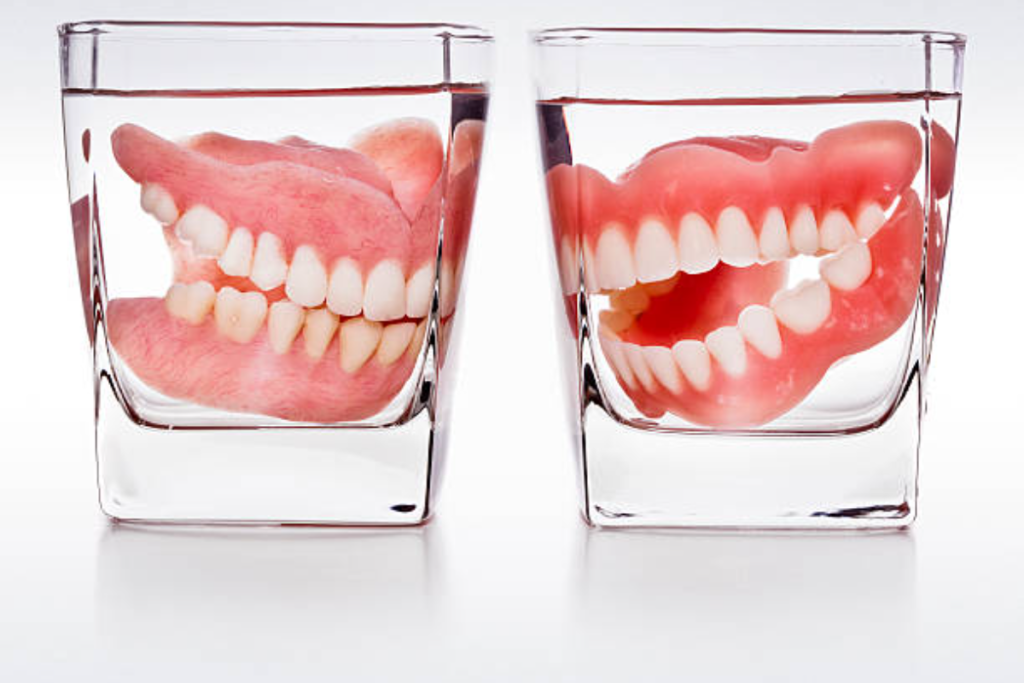When someone gets dentures for the first time, they might notice that talking feels a little different. That’s because your tongue, lips, and teeth all work together when you speak. When dentures in Atlanta are placed in your mouth—especially full upper or lower dentures—they change how these parts move. This can lead to changes in how you pronounce certain sounds or words. This is very normal and expected. With a little time and practice, most people adjust and talk clearly again.
What Are Dentures and Why Are They Needed?
Dentures are fake teeth that help people chew, smile, and talk after losing their natural teeth. Dentists make dentures for the upper jaw, lower jaw, or both. Dentures for the upper jaw are called upper dentures, and dentures for the bottom are called lower dentures.
Why Dentures Change the Way You Talk?
Our teeth, tongue, and palate (the roof of your mouth) all work together when we talk. When teeth are missing, or when new dentures are placed, the mouth feels and works differently. Dentures take up space in your mouth, and your lips, tongue, and cheeks need some time to “learn” how to move around them. An experienced Atlanta dentist near you can help you adjust to these changes and guide you through proper denture use.
What Is the Difference Between Upper and Lower Dentures for Speech?
Upper dentures:
- Usually covers the entire palate (roof of your mouth).
- Stay in place by suction.
- The tongue might touch the denture instead of your original teeth or gums.
Lower dentures:
- Rest on a small, horseshoe-shaped area.
- Are held by your gums and lips.
- Can move more easily than upper dentures because the tongue moves a lot.
That’s why most people find upper vs lower dentures speech feels very different.
How Dentures Affect Speech?
With dentures, you might notice some changes when talking, such as:
- Words sound different.
- Whistling or lisping on some sounds.
- Trouble saying letters like S, F, T, and D.
- Saliva might increase at first.
These changes are normal, and most people improve with practice.
What Are Common Speech Issues With Lower Dentures?
Lower dentures often give more trouble for talking. They can move more because there is not much surface to grip. Your tongue is also very active in the lower part of your mouth. Common problems are:
- The lower denture moves during speech.
- Difficulty saying sounds like “s” and “sh.”
- A feeling that your denture is slipping when you talk a lot.
What Is Speech Adjustment With Dentures?
Speech adjustment with dentures means teaching your mouth and tongue to speak well with your new teeth. Dentists recommend practice. Reading out loud and repeating tricky words can help. Over time, your muscles “remember” how to talk with dentures in. This is called “muscle memory.”
Tips for Clear Speech With Dentures
Here are some simple ways to make your speech better with dentures:
- Practice reading out loud: Books for kids are perfect because the words are simple.
- Repeat words with tricky sounds: Say words with “s” or “f” slowly at first, then get faster.
- Speak slowly and clearly: Give your mouth time to adjust.
- Bite and swallow before talking: This sets your dentures in place.
- Stay relaxed: The more you worry, the harder it feels.
- Ask your dentist for help: Adjustments may help your denture fit better.
How Long Does It Take to Speak Normally With Dentures?
For most people, it can take a few days to a few weeks before talking feels “normal” again. Some need more time, especially for lower dentures. Don’t worry; with daily practice, your speech will improve.
When Should You Call the Dentist?
If you keep having trouble speaking, or if your dentures feel loose or hurt, see your dentist. They might need to adjust your dentures for a better fit, which helps your speech too.
Why Is Speech Training Important With Dentures?
Getting used to dentures is about more than just eating food. Your smile and your words matter! Speech training helps you feel more confident, so you can laugh, sing, and talk to friends without worry.
In Summary
Upper and lower dentures affect speech in different ways because of how they fit and how your tongue moves. The upper denture covers more of your mouth and stays by suction, while the lower denture is smaller and can move more. Most speech problems get better with practice and a good fit. Remember, you are not alone—millions have learned to speak clearly again with dentures!
Regain Your Smile With Custom Dentures!
At Moores Mill Dental, we help you feel confident with custom dentures made just for you. Our team makes sure your dentures fit well, feel comfortable, and look natural. Whether you need full or partial dentures, we’ll guide you every step of the way. We care about your smile and your comfort. Call us today to see how we can help you smile better with dentures that fit right.








